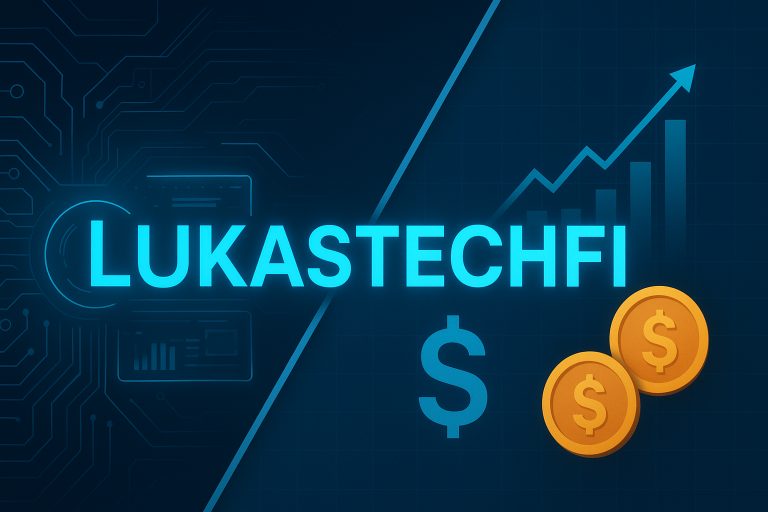A personal loan can be a practical tool to manage your finances, cover unexpected costs, or achieve specific goals.
Unlike loans tied to a specific purpose-like a mortgage or auto loan. A personal loan gives you cash you can use for almost anything.
The benefit of obtaining a personal loan lies in its flexibility: you get a lump sum with fixed repayment terms, predictable monthly payments, and often lower interest rates than credit cards.
This makes it easier to budget and plan.

People use personal loans for reasons like consolidating high-interest debt, funding home improvements, or handling emergencies.
For example, if you owe $10,000 across three credit cards with 20% interest, a personal loan at 12% could save you money and simplify payments.
While not free money, a personal loan offers structure and potential savings when used responsibly.
In this article, we will explore the various benefits of obtaining a personal loan, the situations where it can be useful, and the limitations to be aware of.
What Is a Benefit of Obtaining a Personal Loan?
1. Debt Consolidation
If you have multiple debts with high interest rates, consolidating them into a single personal loan can simplify your payments. By merging your debts, you may reduce your overall interest costs.
Example: Swapping three credit cards at 18–24% APR for a loan at 10% APR cuts interest costs and reduces stress.
2. No Collateral Required
Most personal loans are unsecured, meaning you do not have to provide collateral like a car or home. This reduces the risk of losing valuable assets if you are unable to make payments.
Example: Obtaining a $5,000 personal loan without risking your vehicle or home.
3. Lower Interest Rates
Compared to credit cards, personal loans often have lower interest rates. This can save you money over time, especially if you are borrowing a significant amount.
Example: A personal loan at 8% interest compared to a credit card at 20% interest.
4. Build Credit History
Consistent, on-time payments improve your credit score.
Example: Paying off a personal loan early or on time, leading to a higher credit score.
5. Flexible Use
You can use a personal loan for various purposes, from medical expenses to home improvements. This flexibility makes personal loans suitable for many financial needs.
Example: Using a personal loan to cover medical bills after an unexpected illness.
6. Cover Emergency Expenses
Many lenders offer quick approval and disbursement, often within a few days. This is helpful for urgent financial needs.
Example: Receiving funds within 48 hours for emergency car repairs.
7. Predictable Monthly Payments
Personal loans come with fixed monthly payments, making budgeting easier. You will know exactly how much you owe each month and when the loan will be fully repaid.
Example: A three-year personal loan with a $200 monthly payment.
8. Lower Fees Than Alternatives
Personal loans often have fewer fees than payday loans or cash advances.
9. Quick Access to Funds
Many lenders offer quick approval and disbursement, often within a few days. This is helpful for urgent financial needs.
Example: Receiving funds within 48 hours for emergency car repairs.
10. Ability to Borrow Larger Amounts
Personal loans typically allow you to borrow more than credit cards. This can be advantageous for larger expenses or projects.
Example: Using a $20,000 personal loan for a home renovation instead of maxing out multiple credit cards.
Is Taking a Personal Loan a Good Thing?
Taking a personal loan can be beneficial if you use it responsibly. Consider your ability to make timely payments and the purpose of the loan.
If the loan helps you consolidate debt or fund necessary expenses, it can be a smart financial move.
However, if the loan is used for non-essential purchases or if you struggle with repayment, it could lead to more financial stress.
Always compare interest rates, fees, and terms from different lenders before deciding.
A personal loan is smart if:
- You’re consolidating high-interest debt.
- You need cash quickly for a necessary expense.
- You can afford the monthly payments.
Avoid it if:
- You’re using it for non-essentials like vacations.
- You’re unsure about repayment.
What Is the Use of a Personal Loan?
Personal loans can be used for various purposes, including:
- Debt Consolidation: Combine multiple debts into one.
- Home Improvement: Fund renovations or repairs.
- Medical Expenses: Cover unexpected medical bills.
- Educational Expenses: Pay for courses or certifications.
- Vehicle Repairs: Address urgent car repairs.
- Large Purchases: Buy appliances or furniture.
- Travel Expenses: Finance a vacation or emergency travel.
- Wedding Costs: Pay for venue, catering, or attire.
- Moving Expenses: Cover costs of relocation.
- Starting a Small Business: Fund initial costs or equipment.

What Can You Not Use a Personal Loan For?
While personal loans are versatile, some restrictions may apply depending on the lender:
- Illegal Activities: Any illegal purpose is prohibited.
- Investments: Using a loan for crypto, stocks, or high-risk investments is often restricted.
- Gambling: Funds cannot be used for gambling purposes.
- College Tuition: Some lenders may not allow personal loans for tuition.
- Real Estate Down Payments: Lenders may restrict the use of personal loans for down payments on homes.
- Business Ventures: Some lenders require business-specific loans for entrepreneurial activities.
- Existing Loans: Using a loan to pay another loan from the same lender may not be allowed.
- Speculative Ventures: Funding high-risk or speculative ventures is often prohibited.
The benefit of obtaining a personal loan is clear: it’s a flexible, cost-effective way to manage large expenses or streamline debt.
Understanding these benefits, along with the appropriate and inappropriate uses of a personal loan, will help you make informed financial decisions.
